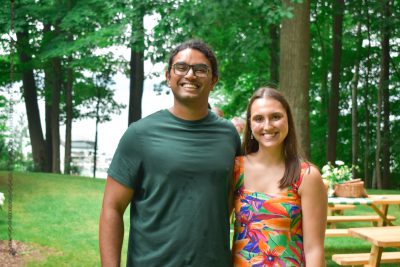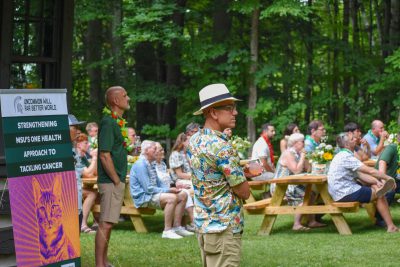On the evening of July 26, on the shore of Torch Lake, Chad Munger and Tracy Hickman generously welcomed guests into their home for a special MSU College of Veterinary Medicine event. The gathering was an opportunity for members of the College to share the vision and goals of our ambitious fundraising initiative within the Uncommon Will, Far Better World campaign. Before boat tours of the lake, guests heard firsthand how the College is poised to drive transformative change, and how early support can help bring this vision to life.
The event set the stage to discuss the College’s four core fundraising goals and the transformational impact they aim to achieve. From new facilities to expanded research and teaching opportunities, each priority reflects the College of Veterinary Medicine’s commitment to shaping a better future. These priorities are outlined below, followed by photos from the event.
The gathering at Torch Lake offered a glimpse into a future shaped by uncommon will and the promise of a far better world. If you’re interested in playing a role in that future, contact development@cvm.msu.edu or 517-353-4937.





















